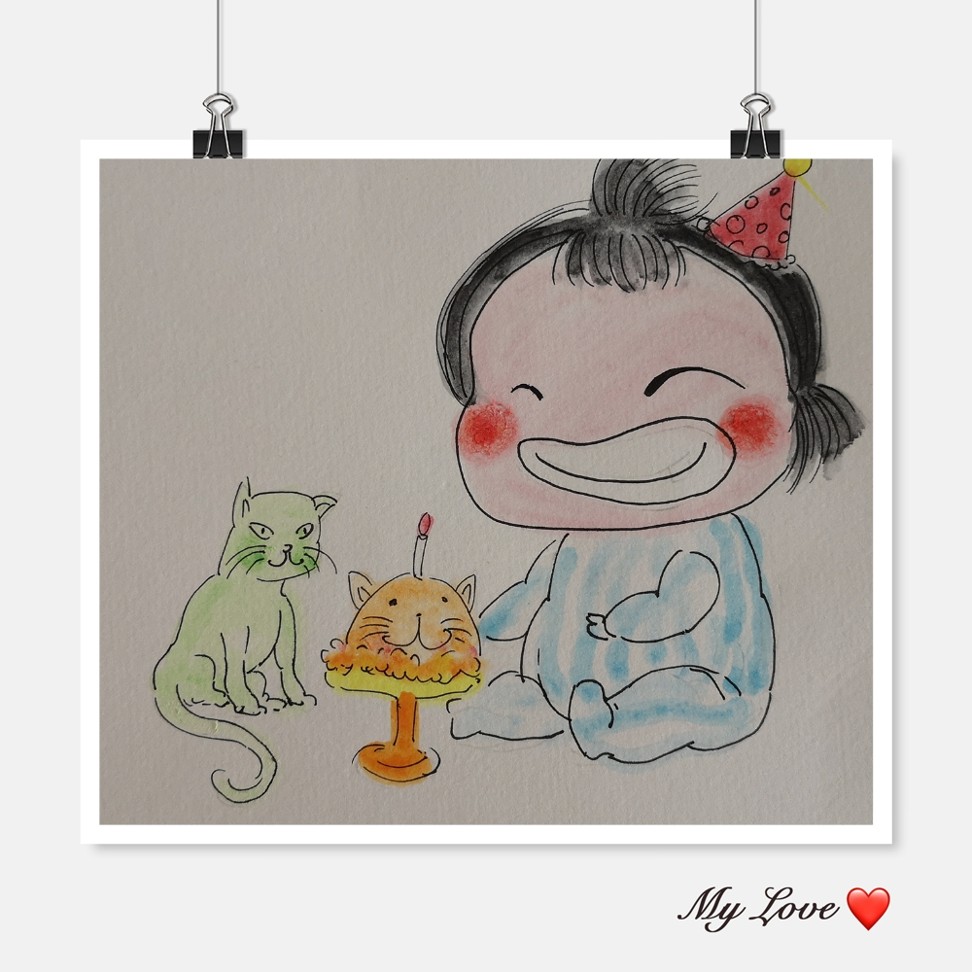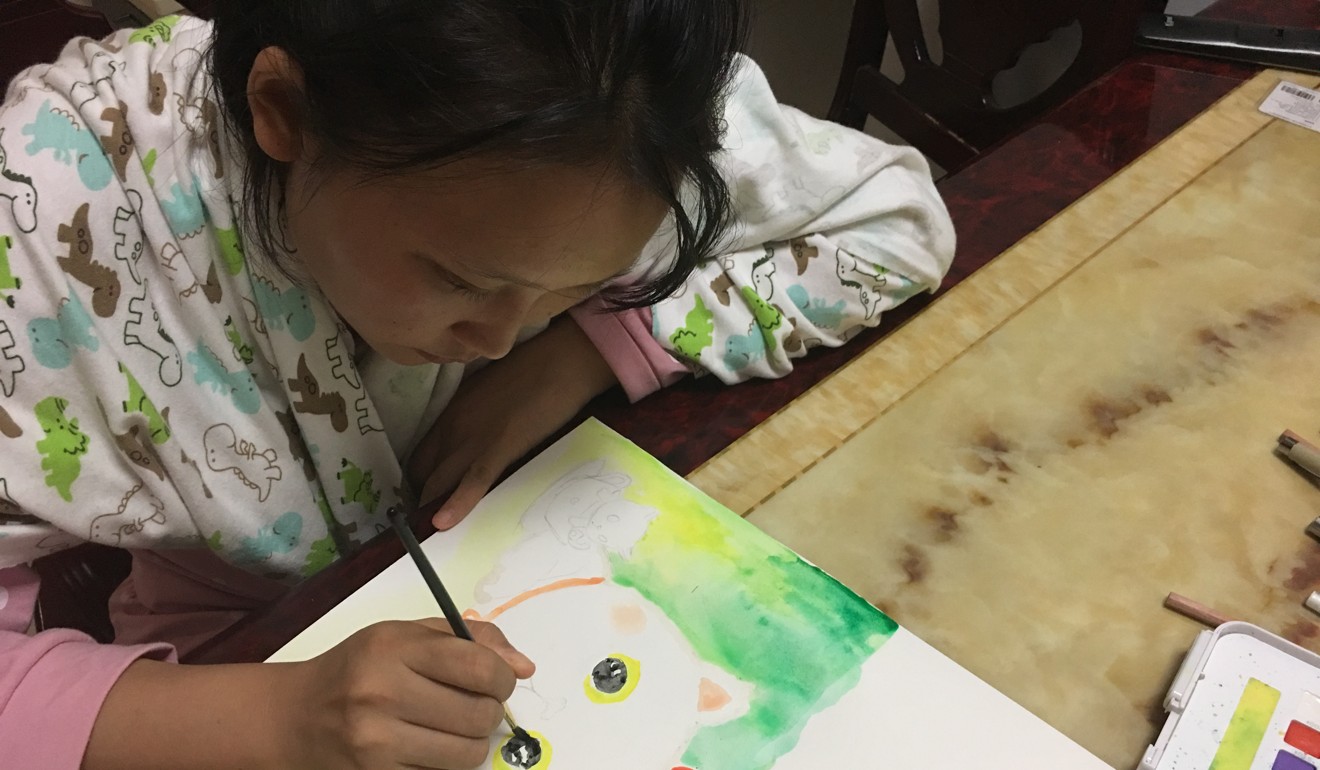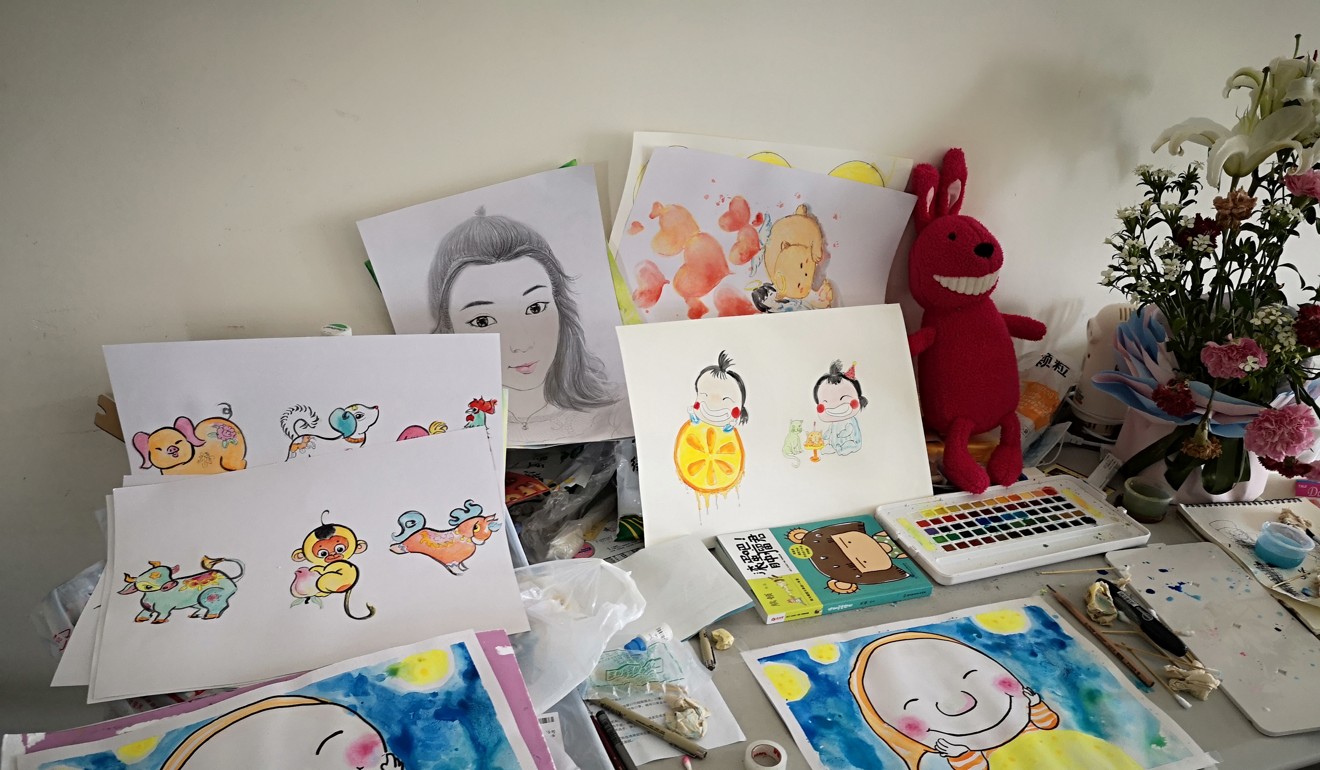
Meet the Chinese kidney patient selling a smile to survive
Art teacher decided a happy face would help her raise money to pay for her dialysis
When 26-year-old art teacher Zhu Ya was struck down by a potentially fatal kidney disease in May her prognosis appeared bleak.
With no realistic prospect of receiving a transplant and faced with the prospect of prohibitively expensive medical bills for the dialysis needed to keep her alive, she initially despaired. But then she decided there was a better way to fight her illness – with a smile.
To raise money to fund treatment her family cannot afford, Zhu has taken to the streets of her hometown of Chongqing, a megacity in the country’s southwest, selling smiley stickers and offering passers-by a smile at the rate of one yuan a minute.
New mother has lung transplant, heart surgery 11 days after giving birth
She has spent the summer sitting in a wheelchair outside a local railway station, defying the oppressive heat and humidity, next to an introductory board that has the slogan “selling smiles to save myself”.
She has also stuck her medical records on to the board to convince passers-by that she is genuine, along with a text that says: “Only a kidney transplant can save me … I long to survive, I hope I can smile everyday, and I wish I could repay my mother.”

Her bravery and optimism moved plenty of people and her story gained widespread attention across the country with many social media users expressing their sympathy and admiration.
Zhu is one of the half a million or so Chinese people diagnosed with uremia – a progressive renal failure that needs regular dialysis to keep the patient alive.
The only other alternative is a transplant – but that can cost up to a million yuan (US$145,000) – way beyond the means of Zhu’s family whose monthly income is about 3,000 yuan.
Chinese law insists that only a direct relative or spouse can donate to a kidney patient – a move aimed at restricting the black market.
The only other alternative is to register with the Red Cross Society in China and join the waiting list to receive an organ from a deceased donor.
But given the difficulty of finding a match, China only carries out around 7,000 kidney transplants a year – compared with over 35,000 in the United States last year, according to the World Health Organisation.
Crowdfunding for sick boy, 4, halted as parents offer to sell twin sister
Both He Jiangxia, Zhu’s mother, and Wang Jiang, her husband, were unable to donate because their blood types were not compatible with hers, leaving dialysis the only option.
But this option is not cheap, as Zhu needs to undergo the procedure four times a day.
Her medical insurance scheme will only fund around 20 to 30 per cent of the cost, leaving her facing costs of hundreds of yuan a day.
“When I was in hospital a month ago, the woman who was next to my bed, and was only a year younger than me, was crying every day, which also made her parents cry a lot. I don’t want that to happen to my family,” said Zhu.
Instead she said she wanted to live happily with uremia, no matter how many years she needed to carry on receiving dialysis.
“Although I can’t afford transplant surgery now, I hope my sadness will not affect my mother, whose hair went grey straight after my uremia diagnosis,” Zhu added.
Zhu’s parents divorced eight years ago and Zhu lived with her mother since then.
Initially, Zhu was not optimistic at all and had had suicidal thoughts until she watched an old man dying in front of her in hospital.

It was the first time Zhu had watched someone die and she then determined to live happily rather than passively suffer.
Prompted by the movie Go Away Mr Tumour, a popular Chinese comedy-drama film based on the life of comic book artist Xiong Dun, who drew comics depicting her struggle during her last months fighting against cancer, Zhu came up with the idea of selling smiley stickers to relieve the financial burden on her family.
“Like Xiong, I am also a drawing teacher and I can make use of my skills,” Zhu told herself, and started producing smiley stickers and balloons late last month.
Medication ‘may be weapon’ in China’s battle against high blood pressure
Although she struggled at first to overcome locals’ curiosity and distrust, Zhu quickly found that far more people were willing to help than she could have imagined.
“Some strangers gave me far more than a yuan for a sticker, like 10 yuan or even 50 yuan. And one kind women even came to my house after finding my home address. I was so moved,” said Zhu.
Her creative fundraising activities attracted even more attention when people started sharing her story via social media and she soon found herself being contacted by people from around the country.

“A young man in China’s northeastern Liaoning province, who was diagnosed with cancer, contacted me on WeChat and told me that he was willing to donate his kidney, but I refused.” said Zhu,
“He was so depressed about his illness and I told him to have a more upbeat attitude towards life. Maybe his cancer will be cured someday,” added Zhu.
Zhu has also appealed for help through a free online fundraising platform Shuidichou and as of mid-August had raised over 33,000 yuan (US$4,800).
Fall turns family’s life upside down, and they turn to crowdfunding
With her new-found online friends Zhu has become keen to push her message that people should not fear their illnesses but only pessimism.
“When I see healthy people feeling unhappy about the hardness in their lives, I think they should change their attitude towards life. We only live once, and we can choose to live happily,” said Zhu.
One disappointment to Zhu is that she will never be able to have children because of her illness – which weighs heavily on her in a culture where childless couples are treated with suspicion and often shunned.
But Zhu said her husband, who only married her two years ago, “did not abandon me and even said to me it might be even better to have no kids at all. I will always feel I owe him something”.

